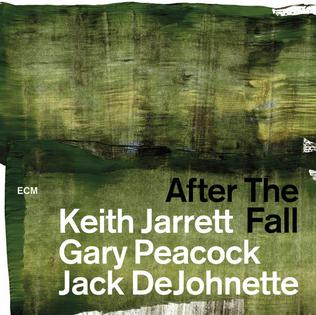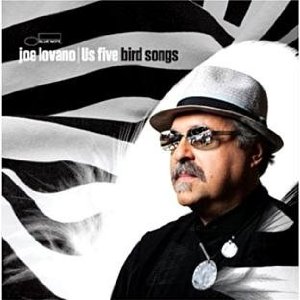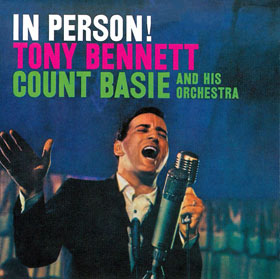WINTER, 1991
Truth to tell, there really is no romantic, exotic history behind Caine, no illustrious pedigree which I might claim. When people occasionally ask whether I am related to the British actor Michael Caine, I tell them that he's the one with all the money, but the fact is neither of us received the name Caine at birth. The famous Caine was born with the name Mickelwhite in a Cockney slum, while I was born Daniel Cohen in Indianapolis in the year 1948. In my own opinion, the idea of the name change, which took place when I was less than a year old, was a consequence of the fact that persons with Jewish surnames were often discriminated against, particularly in the army during the Second World War. While my family kept its Jewish identification and practice, our new name was not so readily recognized as Jewish. *
[*My parents would disagree, claiming that there were too many "Jack Cohens" in the phone book, and the name change was a consequence of the potential confusion.]
Cohen, of course, is a Hebraism indicating descent from the priestly caste, Kohanim, of biblical times (Kaganoff 24), and so common a name among European Jews would seem to simplify the search of my genealogy. The matter of my father's name, however, does not rest there. While he was born Jacob Cohen in 1916 in Lafayette, Indiana, his own father did not adopt the name Cohen until he arrived in the United States. Harry Korchak (1875-1927), my [paternal grandfather, like so many other American immigrants, changed his surname at Ellis Island. In Harry's case, so the story runs, the decision was urged by his cousin, also just off the boat, who insisted, "You're an American now. You should take an American name-- like Cohen!"
Korchak, according to Kaganoff (166-7), derives "Either from the Ukrainian word "eagle"... or from
Korczak, which in Polish is 'wine glass.' This may indicate a sign on a tavern or roadside inn and the name was assumed by its owner." To confuse matters even more, it seems my father was once told by a Polish acquaintance that the name meant "rooster."
Part of the problem in pinning down the name is rooted in the frequent shifting of the Polish-Ukrainian border in modern history. Harry Korchak came to America with his wife and first four children from Klevan, a Polish village in the state of Rovno (The atlases I have at hand unfortunately do not list Klevan at all, but Rovno, since World War II appears on the map as a town in Ukraine, about eighty miles east of the Polish border.) Also from Klevan was Harry's wife Dora Krushen (1877-1946), after whom I received my first name, according to our family custom of naming children in memory of the departed. Interestingly, for the derivation, presumably German, of Krushen Jones offers Kraus, Krauss, Krause, Krauser, Kruse, Krusen, and Krosor as variants of a root meaning "curly-haired."
Kaganoff (24) explains further that "a popular belief that both curly-headed people and kohanim are quick-tempered has mad Kraushaar (curly-haired) a name for those of priestly descent." Thus, by a rather odd route, we seem to have arrived at Cohen, after all, albeit not strictly along the paternal line.
My mother, Mollie Litvak, was born in 1921 in Indianapolis, the second of three children born to Louis and Bertha Litvak. Litwa means Lithuania in Russian and Polish. "This has given us the names Litwack, Littauer, Litwin, Littman, Litant, all of which mean 'a Jew from Lithuania'" (Kaganoff (1720. Although Louis and Bertha met only after they had both arrived in America, they came from nearby towns in Ukraine. Bertha (1896-1974) grew up in Zitomir, a small city about eighty miles west of Kiev, while Louis set out from Svera, a nearby village.
My grandmother's name Bertha was an anglicized form of Borucha, which means "prayer" in both Yiddish and Hebrew. Here parents were Abram Smyrtenko (d. 1898) and Molly Zeldman (1852-?). Of Smyrtenko, little is known, except that the name retains a typical Ukrainian ending. Smyrtenko was rendered Smith by the immigration authorities at Ellis Island. The name Zeldman derives from slide, the German word for silk. "Zeidner, Seidner, Zeideman, Seidman, are all associated with the occupation of silk merchant" (Kaganoff 209)
BIBLIOGRAPHY
Jones, George F. German-American Names. Baltimore: Genealogical Publishing Co., 1990.
Kaganoff, Benzion C. A Dictionary of Jewish Names and Their History. New York, 1977.
IN ROTATION:
Lightly and Politely
FOUR RIPS FROM LCPL
double-disc set
Title refers to the pianist's return to public performance after two years being sidelined by chronic fatigue syndrome. live recording for a concert at New Jersey Cultural Center (?) in 1998, but not released until 2010 on CD.
SIDEMEN: Gary Peacock, bass; Jack DeJohnnette, drums.
a superior performance overall, my reintroduction to Jarrett, et al.
No Jarrett originals in the set. Of the twelve selections, six are popular standards; some of the rest-- e.g., "Scrapple from the Apple" "Doxy," or "Bouncin' with Bud"-- could be called "jazz standards." Along with these come compositions new to my ears from Paul Desmond, Noel Coward, and John Coltrane.
Opening track, "The Masquerade Is Over" (Herb Magidson, Allie Wrubel) is a relatively-unknown tune that should be performed more often. At over fifteen minutes, it is the longest track on the program. A long, unaccompanied piano solo leads off; at about two and a half minutes, bass and drums join in and kick up the tempo. The group recalls some of the great Bill Evans trios.
Jarrett is one of those pianists who "sing" off-mic to his own accompaniment.
Coward's "I'll See You Again" is taken at a swinging waltz tempo.
"Doxy" struts with aplomb, magnificent ensemble parts.
"One for Majid"
NEXT: Yet More Moby Grape










No comments:
Post a Comment